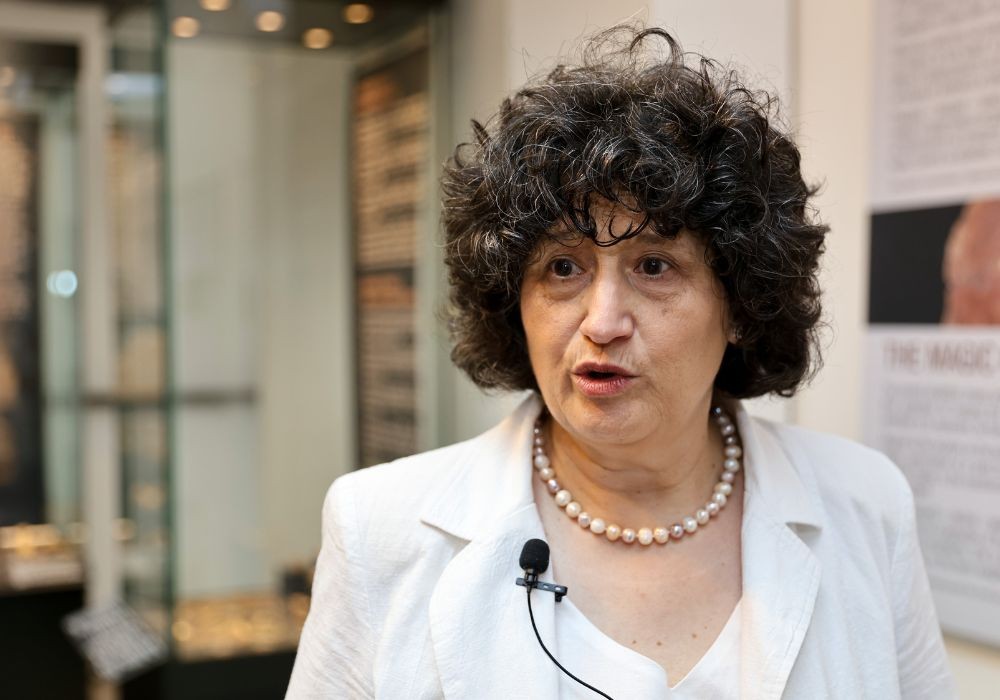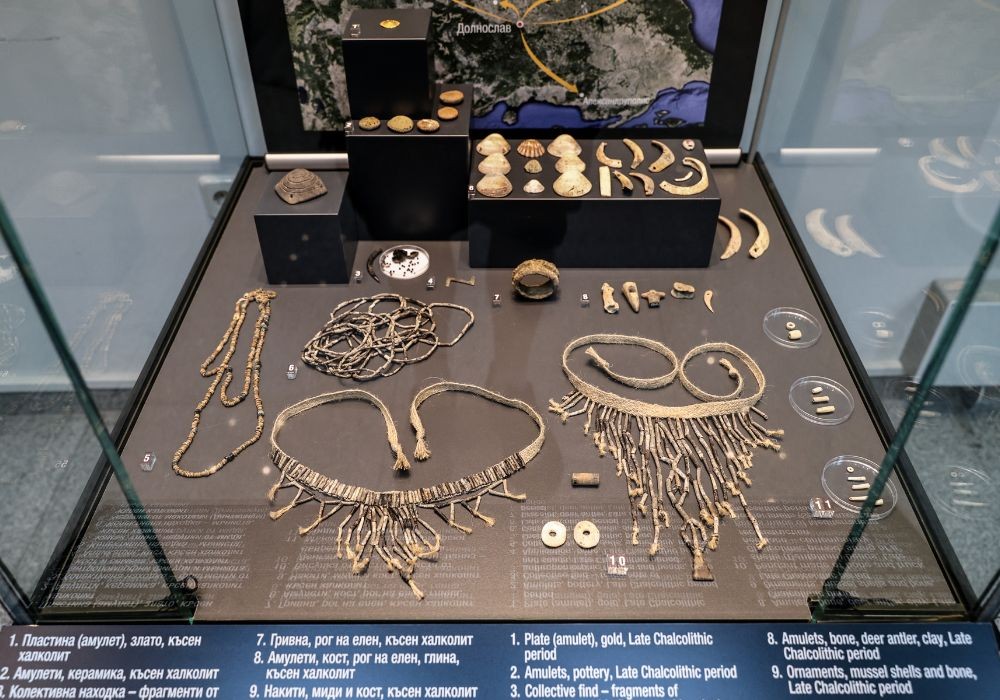With more 40 thousand archaeological sites and artifacts, Bulgaria is a true open-air museum. In terms of the number of finds, this country ranks third in the world after Italy and Greece. From the Neolithic, eight millennia ago, to the late Middle Ages, these lands have been a crossroads of peoples and civilizations that have left priceless treasures. Today, Bulgarian archaeologists breathe life into the past with every unearthed piece of history.

2024 was very successful year with significant artifacts from all periods. The most spectacular ones are presented within the framework of the exhibition "Bulgarian Archaeology 2024" at the National Archaeological Institute with Museum on the occasion of the Day of Archaeologists, marked on February 14 since 1970. We talk about the challenges of this noble profession with Rositsa Mitkova – head of the "Prehistory" fund at the Regional Archaeological Museum Plovdiv, who has dedicated her entire life to archaeology.

"I'll start first with the romantic idea of people about the work of archaeologists. Everyone thinks and sees only what is on the surface - the discoveries. But to get there, we are forced to go a significant way in our professional development. For me and my colleagues archaeology is a way of life. It requires enormous physical effort in rain, in snow, in the cold. Not everyone could withstand it. But we are driven above all by the vocation and love for the profession," Mitkova tells us.
Bulgarian archaeologists, museum workers and scientists continue to research and preserve our cultural and historical heritage with great dedication, despite the disdainful comments of some politicians that they were "dusting museums" and therefore their salaries would not be raised. They not only discover and preserve priceless artefacts, but actively present them to the world through publications, exhibitions, conferences and every day bring new finds into the museum archives, ensuring that Bulgaria's rich history will be passed on to future generations.

Their activity is not just work, but a mission worthy of respect, seemingly not sufficiently appreciated by society.
"Our salaries are significantly lower than those of teachers, but because we are a small guild and do not protest so actively, our voice remains unheard. Our forms of protest are more passive. Whenever there is a need for someone to present a city or region, they turn to us. But when we need help, we are forgotten," Rositsa Mitkova adds with bitterness.
Due to ambiguities in the legislation, Bulgarian archaeologists often face a negative attitude from business and investors. This has led to protests and even incidents, such as cut car tires, etc.:
"We fulfil our obligations imposed by the Cultural Heritage Act, but not everyone understands it. The law has its own issues - if a person finds something on their own land, they are obliged to finance the archaeological works and then the finds become state property. This leads to opposition because not every entrepreneur is willing to report an archaeological site on their property. In this case, everything depends on their conscience. Sometimes significant discoveries sink into obscurity or are destroyed. Perhaps the state should take responsibility and support owners who cannot finance the archaeological works," Rositsa Mitkova says and in conclusion wishes her colleagues a successful season with memorable discoveries and many happy moments.
Publication in English: Al. Markov
Photos: Pexels, NAIM, BTA
After almost 80 years, a new breeding colony of the endangered Dalmatian pelican has appeared in Bulgaria . The birds have settled on artificial islands built by the Bulgarian Society for the Protection of Birds (BSPB) in the Mandra-Poda Complex, a..
On 25 January 1935, Tsar Boris III signed the decree establishing the Bulgarian National Radio. The document, which officially marked the beginning of "Radio Sofia", as the Bulgarian National Radio (BNR) was then called, made radio broadcasting in Bulgaria..
The Federation of European Carnival Cities has declared Pernik a global center of masquerade traditions. 16 years ago, Prenik was named the European Capital of Sourvakar and Mummer Traditions, and nearly 10 years ago, the Surva festival was..
Love blooms with renewed vigour every year on 14 February! Valentine's Day is increasingly being celebrated in Bulgaria as a holiday that inspires lovers to..
The first Dalmatian Pelican of this season hatched a few days ago in the protected area Kalimok - Brushlen near the Danube town of Tutrakan, reports the..
More than 4,000 participants from 52 masquerade groups from all over the country will take part in the Jamala National Masquerade Festival in Kyustendil on..

+359 2 9336 661
